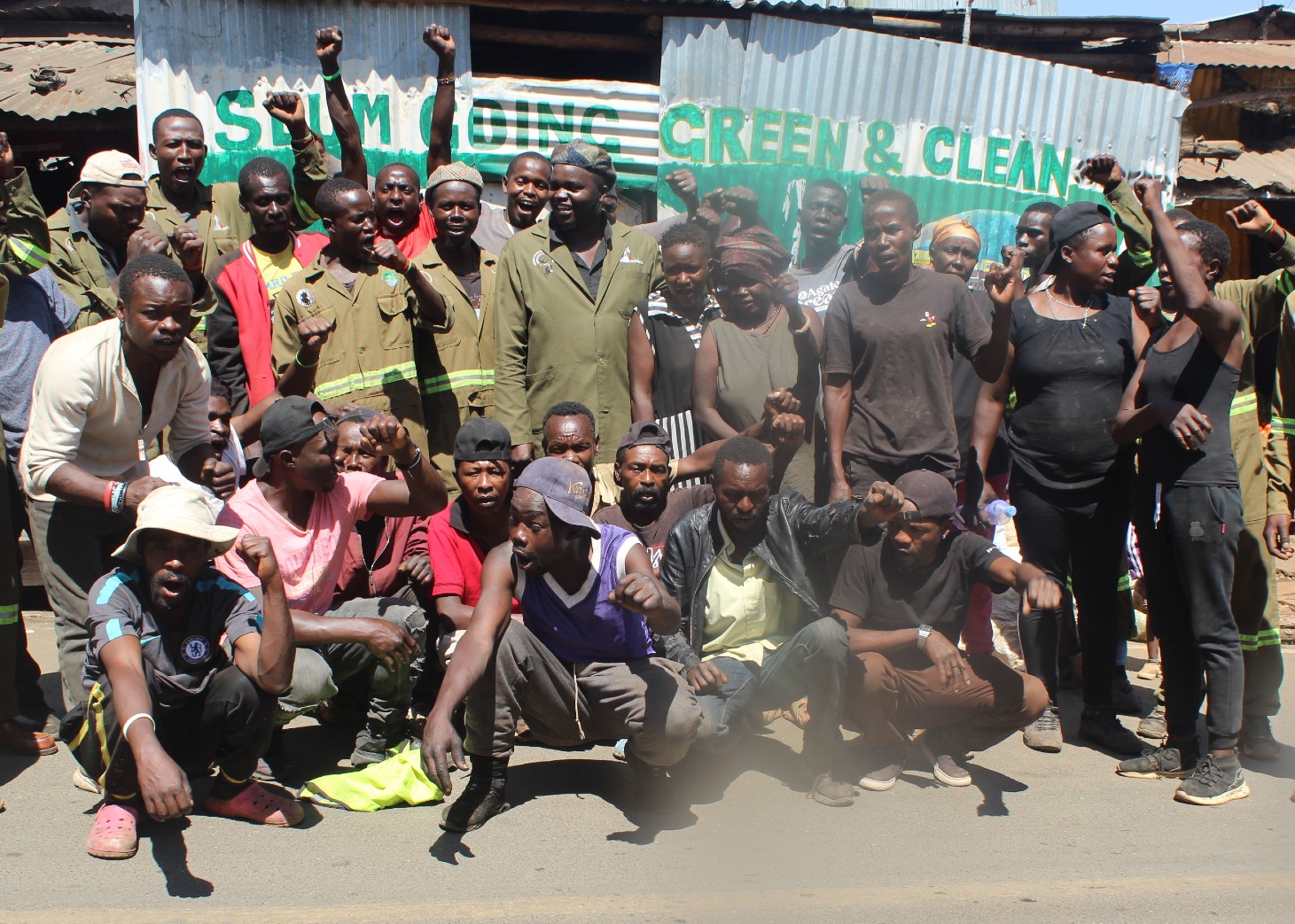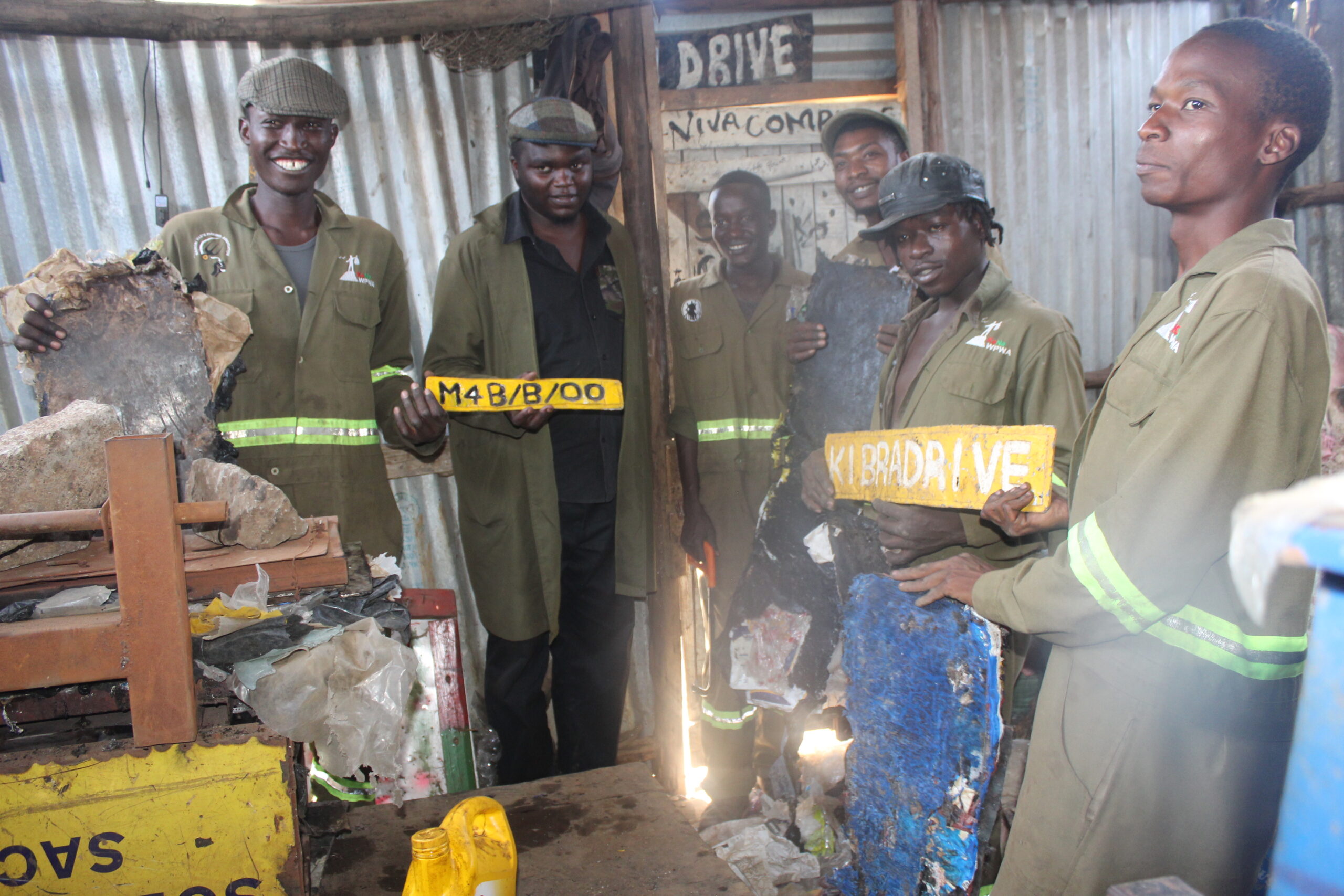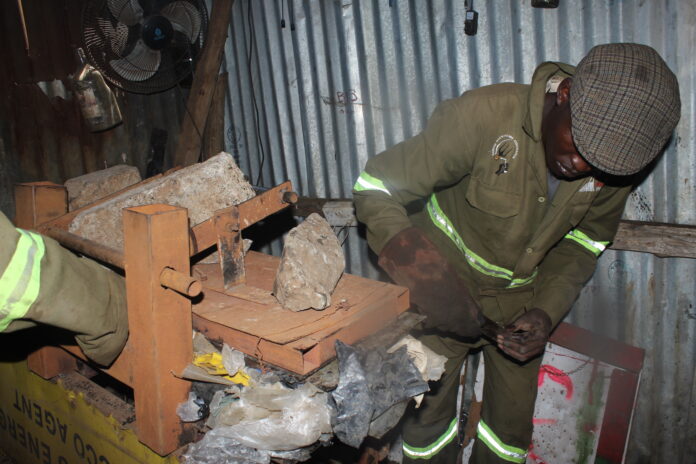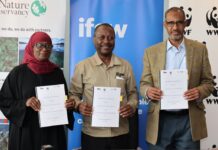By Nimo Nyambura
Nairobi, Kenya: Brian Gisore, 27, and his team are huddled in their makeshift office in Kibra, constructed from iron sheets. The sweltering heat from the sun beats down on them, worsened by the heat coming from the makeshift heat press contraption held together by four large stones. Despite the discomfort, Brian and his team are racing against time to create street signage for the Mathari Valley housing project, a task assigned by a private contractor.
Through innovative and sustainable methods, Brian’s team tackles the issue of waste pollution from single-use plastics and polythene bags in informal settlements like Kibra. Utilizing their makeshift heat press machine, they compress plastic bags at high temperatures into usable panels for street signs, road traffic signage, car plates, and advertising boards.
With a team of fifty locally recruited waste pickers, Brian’s initiative collects household waste from two thousand homes in Kibra, sometimes conducting collections twice a day, all at no cost to residents. They meticulously sort through the waste, extracting polythene bags, which are then brought to the center for weighing. Each kilogram fetches approximately fifty Kenyan shillings, significantly more than the local rate for one kilogram of reusable plastic, which stands at fifteen Kenyan shillings.
Brian emphasizes the unique challenge posed by single-use plastics and polythene bags, which lack a buy-back system and contribute significantly to river pollution and drainage blockages. “With better support, we can enhance our environment and improve the livelihoods of waste pickers not only in Kibra but also across the nation through innovative solutions,” he states.

However, the project encounters numerous challenges, including the high cost of electricity required to maintain the heat press machine, limited access to protective gear for workers, and inadequate government recognition of waste pickers, not just in Kibra but throughout Kenya.
Nationwide, there are approximately 46,000 waste pickers, with 36,000 registered under the Kenya National Association of Waste Pickers across 24 counties.
Maurice Hamisi, Secretary of the Kenya National Waste Pickers Association in Mombasa County, underscores the importance of recognizing waste pickers’ role in the circular economy. He criticizes the 2022 Waste Management Law for classifying waste pickers as mere service providers, alongside more established waste management entities, thereby sidelining them from the waste management value chain.
According to Hamisi, the new law poses a threat to waste pickers’ livelihoods, as it mandates the closure of dumpsites and requires waste truck owners to sort their waste before disposal, resulting in reduced opportunities for waste pickers at both landfill sites and household levels.
Dorothy Adhiambo Otieno, Program Officer at the Centre for Environment Justice and Development, rejects incineration as a solution proposed by the Kenyan and County governments for plastic waste management. She argues that incineration would only stimulate increased plastic production to sustain the incinerators, exacerbating environmental pollution.
“What we truly need,” she asserts, “is transparency regarding the types of plastics being exported by the government, enabling public awareness and ensuring waste pickers understand the materials they handle at landfills. Chemicals present in plastics are significantly contributing to the rise of non-communicable diseases in Kenya.”

With Nairobi producing approximately 2000 tons of plastic waste daily, only a fraction, estimated at 10 percent, gets recycled. In informal settlements like Kibra, the absence of government waste management services exacerbates the issue. Consequently, most of the waste ends up in rivers or haphazardly dumped, creating hazardous landfills near residential areas and leading to numerous health concerns.
Despite existing policies banning problematic plastics, waste management in Kenya remains a significant challenge for both national and county governments.
In 2023, Nairobi hosted the third session of the Intergovernmental Negotiating Committee to develop an international legally binding instrument on plastic pollution at the UN Environment Programme (UNEP) Headquarters. However, parties failed to reach a consensus on the terms of the initial draft due to differing views on addressing the entire plastic cycle, from production to waste management.
The ongoing INC-4 that kicked off on April 24th, in Ottawa, presents a crucial opportunity for stakeholders like Brian to advocate for waste pickers’ inclusion in the conversation, given their pivotal role in the waste management cycle.














